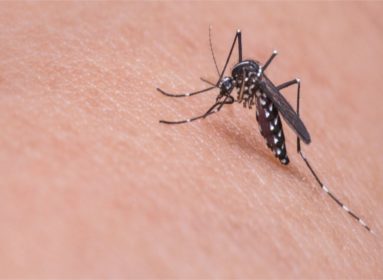
Ready to switch to a more heart-healthy diet? Here is how to get started with the Mediterranean diet.
If you are looking for a heart-healthy eating plan, the Mediterranean diet might be right for you.
The Mediterranean diet blends the basics of healthy eating with the traditional flavors and cooking methods of the Mediterranean.
Interest in the Mediterranean diet began in the 1960s with the observation that coronary heart disease caused fewer deaths in Mediterranean countries, such as Greece and Italy, than in the U.S. and northern Europe. Subsequent studies found that the Mediterranean diet is associated with reduced risk factors for cardiovascular disease.
The Mediterranean diet is one of the healthy eating plans recommended by the Dietary Guidelines for Americans to promote health and prevent chronic disease.
It is also recognized by the World Health Organization as a healthy and sustainable dietary pattern and as an intangible cultural asset by the United National Educational, Scientific and Cultural Organization.
The Mediterranean diet is a way of eating based on the traditional cuisine of countries bordering the Mediterranean Sea. While there is no single definition of the Mediterranean diet, it is typically high in vegetables, fruits, whole grains, beans, nut and seeds, and olive oil.
The main components of Mediterranean diet include:
- Daily consumption of vegetables, fruits, whole grains, and healthy fats
- Weekly intake of fish, poultry, beans, and eggs
Moderate portions of dairy products
Limited intake of red meat - Other important elements of the Mediterranean diet are sharing meals with family and friends, enjoying a glass of red wine and being physically active.
The foundation of the Mediterranean diet is vegetables, fruits, herbs, nuts, beans, and whole grains. Meals are built around these plant-based foods. Moderate amounts of dairy, poultry and eggs are also central to the Mediterranean Diet, as is seafood. In contrast, red meat is eaten only occasionally.
Healthy fats are a mainstay of the Mediterranean diet. They are eaten instead of less healthy fats, such as saturated and trans fats, which contribute to heart disease.
Olive oil is the primary source of added fat in the Mediterranean diet. Olive oil provides monounsaturated fat, which has been found to lower total cholesterol and low-density lipoprotein (LDL or “bad”) cholesterol levels. Nuts and seeds also contain monounsaturated fat.

Fish are also important in the Mediterranean diet. Fatty fish — such as mackerel, herring, sardines, albacore tuna, salmon, and lake trout — are rich in omega-3 fatty acids, a type of polyunsaturated fat that may reduce inflammation in the body.
Omega-3 fatty acids also help decrease triglycerides, reduce blood clotting, and decrease the risk of stroke and heart failure.
The Mediterranean diet typically allows red wine in moderation. Although alcohol has been associated with a reduced risk of heart disease in some studies, it is by no means risk free. The Dietary Guidelines for Americans caution against beginning to drink or drinking more often on the basis of potential health benefits.
Interested in trying the Mediterranean diet? These tips will help you get started:
- Eat more fruits and vegetables. Aim for 7 to 10 servings a day of fruit and vegetables.
- Opt for whole grains. Switch to whole-grain bread, cereal, and pasta. Experiment with other whole grains, such as bulgur and faro.
- Use healthy fats. Try olive oil as a replacement for butter when cooking. Instead of putting butter or margarine on bread, try dipping it in flavored olive oil.
- Eat more seafood. Eat fish twice a week. Fresh or water-packed tuna, salmon, trout, mackerel, and herring are healthy choices. Grilled fish tastes good and requires little cleanup. Avoid deep-fried fish.
- Reduce red meat. Substitute fish, poultry, or beans for meat. If you eat meat, make sure it is lean and keep portions small.
- Enjoy some dairy. Eat low-fat Greek or plain yogurt and small amounts of a variety of cheeses.
- Spice it up. Herbs and spices boost flavor and lessen the need for salt.
The Mediterranean diet is a delicious and healthy way to eat. Many people who switch to this style of eating say they will never eat any other way.
Source: Mayo Clinic Staff


































































Comments are closed.